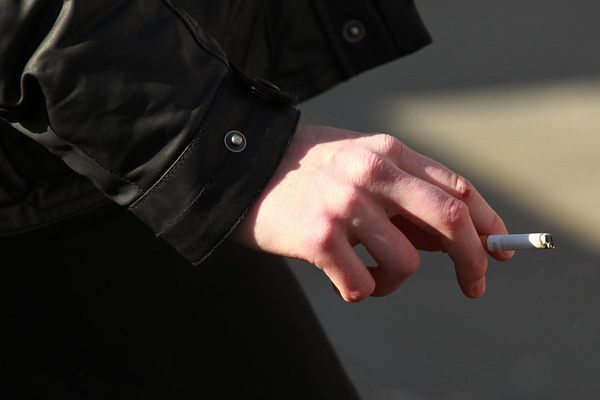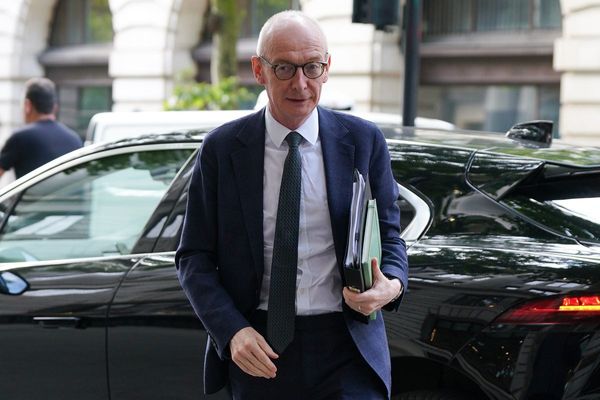COUTTS, Alta. — Alberta RCMP officers were met with anger and chants of "Hell no, we won't go" Wednesday as they attempted to persuade protesters camped at a United States border crossing to move to another location.
"We're not going anywhere. There's going to be more coming," said Keith Alexander, who was among dozens of truck drivers and their supporters on the highway north of the Coutts crossing and near the town of Milk River.
"I'm here for my kids and I guarantee 90 per cent of the people that are here are here for the same reason. The cops are telling us we've got to move to a more convenient location over there.
"No, no, no, no."
Demonstrators set up a blockade at the crossing late last month in solidarity with similar ones in Ottawa and other cities to protest a federal COVID-19 vaccine mandate for cross-border truckers and other public health measures.
They had agreed to keep one lane of Highway 4 open in each direction, but there have been closures a number of times. On Tuesday night, several tractors again shut down the highway.
RCMP Supt. Roberta McKale said a field had been secured for protesters on the south edge of Milk River.
"End of story — they've got to go. This site is unsafe. We can't have this continue on. And people have to make decisions that are good for themselves and good for society," McKale said.
"There are consequences for that. If it's a ticket, it's a ticket," she said. "People are coming here knowing this is illegal. That is a decision that they're making."
McKale said vehicles are lining the highway and people are camping in ditches. Firepits that have been set up pose a risk and people are wandering onto the highway at night not wearing reflective equipment.
Some were also playing ball hockey on the road, she added.
McKale said officers were trying to persuade protesters to move and tickets were a good possibility. An RCMP spokesman said later Wednesday that officers had started issuing tickets.
"Eventually people are going to have to make some decisions about where they want to protest. We are providing them a legal site down the road."
Ed Miedema drove nine hours from Barrhead, Alta., to join the blockade. He said he expected a tense situation but found a laid back, small-town atmosphere.
"We came to support the people that are here and to show our frustration with the state of our nation," he said.
"You cannot restrict my right to drive down the highway to see my fellow Albertans and my fellow Canadians."
Brad Rabusic, from nearby Taber, Alta., said he was thrilled to join the protest and wasn't going to leave.
"They're just trying to move you further and further away from the border. I never thought I'd be doing this … camping out on a highway, but here I am."
The Alberta government announced Tuesday that it was scrapping its COVID-19 vaccine passport requirement starting Wednesday. Other public health measures, including a mask mandate, are to be lifted March 1.
For many of the protesters, it wasn't enough.
"We're here for the big picture. It started with the border thing. It started with (Prime Minister Justin) Trudeau, and until Trudeau moves, we don't move," said John Vanreeuwyk, a feedlot operator from Coaldale, Alta.
Vanreeuwyk said he's grateful for the steps that Premier Jason Kenney has taken, but is angry that people still have to wear a mask.
"Overall it's disappointing," he said.
"We've got guys here — they've lost everything due to these mandates. They're not giving up and they're willing to stand their ground and keep going until this is done.
"The harder the politicians push, the larger this is going to get."
Public Safety Minister Marco Mendicino acknowledged Wednesday the situation at the Coutts border crossing had again deteriorated, and he called for the disruption to end.
"This blockade of Alberta's most important link to the U.S. has already cost the province's economy hundreds of millions of dollars. The North American agricultural sector is highly integrated with everything from feed to meat to live animals crossing the border in both directions and most of it is at Coutts," he said during a news conference.
"The Coutts-Sweetgrass crossing is the only one between Winnipeg and Vancouver with the capacity to handle many of these goods, which support thousands of jobs across Western Canada."
Emergency Preparedness Minister Bill Blair added that the law must be upheld.
"Truckers who have kept our shelves stocked with the pandemic are currently being blocked or slowed down while carrying essential goods into our country and from our factories to their markets. These truckers, who have been heroes throughout the pandemic, are by being unlawfully stopped and impeded from doing their jobs," he said.
"As a result of their actions, their unlawful actions, to block our highways leading into our ports of entry with the United States, they're essentially putting their foot on the throat of all Canadians. They're cutting off essential supply lines and goods and services."
This report by The Canadian Press was first published Feb. 9, 2022.
— With files from Jim Bronskill in Ottawa.
Bill Graveland, The Canadian Press







